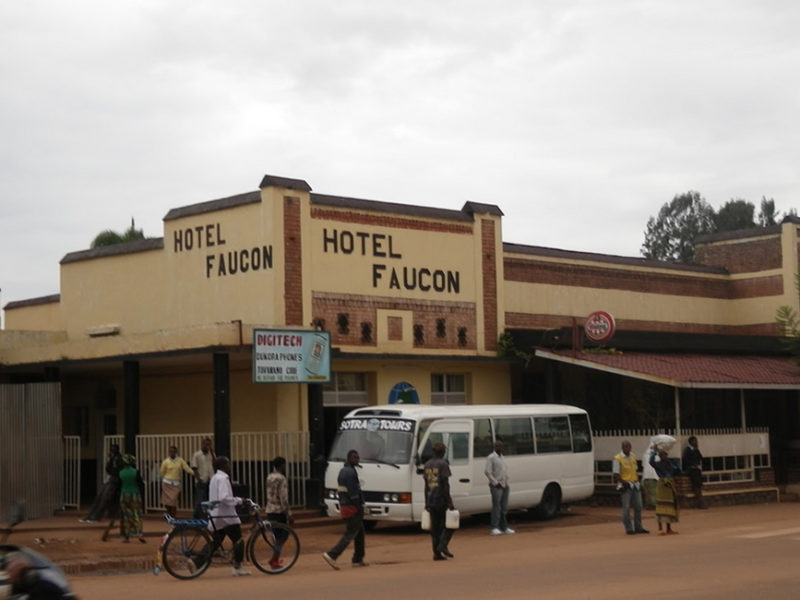Steps to Planning a Safari in Rwanda
Rwanda is a fast-growing safari destination that is seeing ever-growing numbers of travelers. If you’re eying this destination for your next Africa holiday trip, memories are expected in Rwanda. When planning a safari to Rwanda, some people already have their hearts set on a country or two. Others, on the other hand, are still completely clueless. But Rwanda is the best next destination to be on your minds.
Rwanda is famous for its gorilla trekking opportunities in the Virunga Mountains. This is where Dian Fossey researched and habituated mountain gorillas in the 1960s. Although gorilla trekking is a once-in-a-lifetime experience, the country has a lot more to offer. In fact, if gorilla trekking is beyond your budget, Rwanda is still worth visiting as an up-and-coming destination offering primate walks, volcano hikes and bird-watching in Volcanoes National Park and Nyungwe Forest National Park, plus boat trips on Lake Kivu in the Rift Valley and a classic safari in search of the Big Five in low-key Akagera National Park.
PLAN YOUR SAFARI ACCORDING TO THESE STEPS
Decide where to Go
With 4 National Parks and Wildlife Reserves to choose from, deciding where to go in Rwanda can be daunting. The first step is to determine the kind of safari vacation you want or the specific things you’d like to see.
Are you looking for the classic safari experience? Then perhaps Volcanoes National Park is the right choice for you. Want to discover great ancient cultures? Akagera National Park and Nyungwe National Park may be more your speed. For forest jungle trekking, consider the Volcanoes National Park (home of the mountain gorillas).
Nyungwe Forest National Park, where you can meet our tree-dwelling cousin chimpanzee bands or Gishwati-Mukura national park is the newest national park in Rwanda and is known for chimpanzees. Chimpanzee trekking is the major activity in this park and visitors’ chances of seeing chimpanzees in this park are very high. These parks have other primates like Golden monkey trekking among others.
Decide when to go
Once you’ve chosen your destination, the next step is to decide when to travel. Rwanda has two optimum travel seasons that most travelers consider; the Dry season and Rainy Season.
Usually, the dry season is better for most Rwanda safari trips. June to September: This is the peak season and the longest dry season in Rwanda. It is apparently the best time to see gorillas in Rwanda and you’re sure you and your photography equipment will not get drenched in the torrential downpours. Getting to the parks is easy and the hiking trails are not muddy and slippery. There are also no chances of rain during the gorilla trekking.
The wet months, from October to May, are the best time for chimp trekking and forest birding, but general hiking and spotting other primates might be easier in the drier months, from June to September. Boat Safaris on Rwanda’s lakes have become popular because they offer more relaxing opportunities to view wildlife and beautiful sceneries. Boat trips in Rwanda are mainly done on Lake Ihema in Akagera National Park which lies in Eastern Rwanda and is a two and a half hours drive away from Kigali but during dry season.
Book your tour Activities and Lodging
Next, you need to decide whether you’re going to travel solo or with the help of tour guide. If you opt for an all-inclusive guided safari, your tour operator should organize details like accommodations and tours for you. Even if you decide to book everything yourself, you’ll probably have to arrange treks and safaris through a specialized local safari company (unless you’re taking a self-game drive in easy destinations).
The best local operator to give you a great experience in planning and during your trip is Primate Safari Experiences Ltd. They have been operating Rwanda expeditions, and they book strategically located award winning lodges for your trip to Rwanda. For example; Akagera game lodge, One&Only Nyungwe lodge, Singita Kwitonda lodge in Volcanoes NP, King fisher beach hotel among others.
Get in touch with your preferred local operator as much as a year beforehand, and it’s a good idea to book your gorilla permit well in advance because seeing the mountain giants is limited to eight trekkers per habituated gorilla group.
Book your flights
Depending on where you’re flying from, flights to Rwanda can be a bit expensive, and a limited number of carriers often means that seats fill up quickly. For the best rates, book as far in advance as possible.
Does RwandaAir (WB) have online web check-in? Yes, you may check-in for your RwandaAir (WB) domestic or international flight online starting 24 hours and ending 60 minutes before the scheduled departure time (depending on your departure city and destination) to receive a printable boarding pass.
Try to communicate your international flights with your local operator when booking, so the ground handler or first night hotel will be responsible for arranging airport transfers.
Buy travel Insurance
By this time in the planning process of your safari trip to Rwanda, you’ll have invested a significant amount of money in flights, tours, and your accommodation. It would be best if you had protection at this point. Travel insurance is essential, especially in Africa, where airlines cancel flights without warning regularly, and state hospitals are not places you want to end up after an emergency.
Besides medical costs, your insurance should cover trip cancellation, loss of valuables, baggage loss, or theft. If you’re headed to a particularly remote spot, make sure that your insurance covers medical evacuation as well.
Check your visa requirements
Several months before your departure date, make sure to check with your consulate whether you need a visa. This will be determined based on your nationality, not on your country of residence. Rwanda visa rules change at any time, so it’s important to check with an official government source rather than relying on advice given by outdated travel websites.
Rwanda’s immigration allows you to purchase a visa upon arrival, but also you can apply online in advance from your home country. Even if you don’t need a visa, there may be some special requirements for your passport; like entering Rwanda, your passports should be valid for at least six months from the date of entry in Rwanda.
Visa Fees, these are fees for processing of applications. If applications are denied, or withdrawn by the applicant, refunds of fees will not be made.
Validity of a Visa, the maximum and minimum period of validity of a visa is set out in the Information for Applicants for each visa class.
Single or Multiple Entries, whether a visa is issued for single or multiple entries is set out in the Information for Applicants for each visa class.
Organize Travel Medication
A vaccination certificate may be required at the border post. In the event of a major disease outbreak, specific requirements could be set and put to the knowledge of the public. At least two months before you depart for your Rwanda trip, you need to visit a travel Hospital and determine what vaccinations are recommended for your destination.
Hepatitis A&B, typhoid, and rabies are good ones to have. Rwanda immigration will require proof of yellow fever vaccination as a condition of entry, while malaria is prevalent throughout most regions.
A negative PCR COVID-19 test certificate is a mandatory entry requirement in Rwanda. That and other entry requirements you should look out for. Be sure to consult your doctor before deciding which anti-malaria prophylactic to take as all of them have different side effects. Pregnant women should be aware that the Zika virus is also a problem in some areas.
Covid-19 pandemic changed the way we travel, and on safari trips, we lookout for yours and our protection. Make sure you’re up to date with current coronavirus recommendations for travelers like checking frequently about Rwanda.
Buy your travel equipment
Now comes the fun part of planning your impending safari trip to Rwanda, buying all of your specialized equipment. Your shopping list may include items from mosquito repellents to a good set of binoculars and a pair of durable hiking shoes.
Be prepared for all kinds of weather because, even in the Dry season, nights can be incredibly cold. Think about preserving your memories, whether that means investing in a quality camera or buying a scrapbook and a spare set of pens. One essential purchase is a first aid kit, complete with any personal medications as well as all items you’ll need to treat minor injuries.
What to pack for your trip include;
Shirts with long sleeves (even in summer, as protection from the sun, mosquitoes and Tsetse flies), T-shirts, Shorts, Jeans or safari trousers for evenings and cooler days, a jacket and sweater are recommended for early morning and evening game drives, Lightweight water-proof jacket, Sturdy trousers, Rain hat, Swim and beachwear while at camp, Comfortable walking shoes, Strong waterproof walking boots (comfortable for going up steep hills).
Pants should be tucked into socks and boots while trekking, Sun block, sunglasses, hat, moisturizer and lip-salve are all essentials, Strong insect repellent, Binoculars and camera equipment, Small backpack to carry water and a packed lunch
Decide what to do about Money
Decide what to do about money a few weeks before you travel. In Rwanda, carrying large amounts of cash around isn’t safe; however, ATM’s are not necessarily available on every street corner. Avoid traveler’s checks, also, as they’re rarely accepted as a viable currency. Credit cards are widely accepted in Kigali.
The maximum amount of Rwandan Francs you can withdraw per transaction at an ATM is 200,000 RWF (about $240 USD) and most machines will allow two withdrawals of 200,000 RWF. You can withdraw USD from KCB ATMs scattered around town ($500 USD maximum per withdrawal). If you bring USD to use during travel make sure all bills are newer than 2006.
Read about your Destination
Researching your Rwanda before you get in, there is a great way to increase your excitement level and improve your local knowledge. Primate Safari Experiences Ltd can give you valuable insight into a country’s history and culture while also advising you on lesser-known things to see and do.
Phrasebooks are a good idea, too, because knowing even a few local language sentences will go a long way towards helping you make friends. Try Swahili or Luganda-English phrases for travelers.
Lastly, fictional books are written by African writers or set in the country you’re traveling to help give you a sense of what to expect before you travel.
In conclusion, Rwanda is a small country with natural wonders, vast lands of amazing wildlife, great city and cultural experiences. Deciding what to do during your travels can be intimidating. However, first deciding to visit Rwanda can help narrow down all the sights and activities available in other countries.


